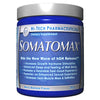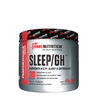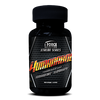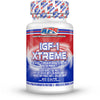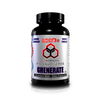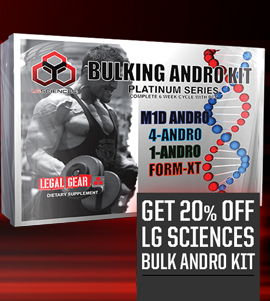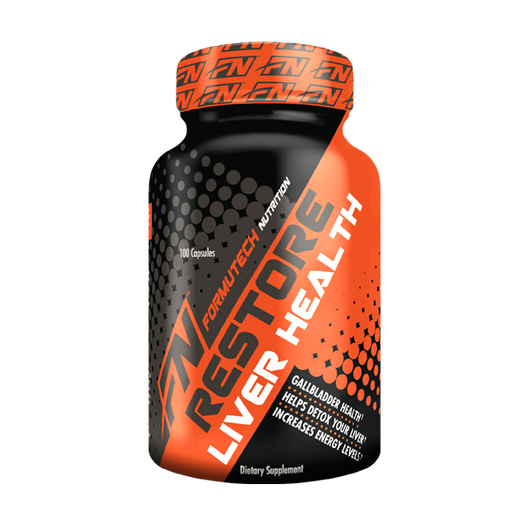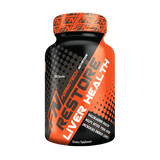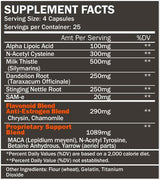Your liver is extremely important in ridding your body of toxins. Your liver cleanses your blood and helps aid in digestion of the foods you eat. Everything you eat, breath, and absorb through your skin is processed by the liver and over time your liver can become over worked. When this happens it can become over worked is unable to process all the toxins entering the body. As a result, your body will . After years and years of storage, these toxins will cause disease. Your liver uses enzymes to break down toxins into water and fat soluble substances so that your kidneys and colon can eliminate them. Your liver manufactures these enzymes upon demand. The more demand there is in your body, the more your liver is stressed and over time, damage can occur.
RESTORE™ features a proprietary blend of ingredients formulated to help maintain a clean and healthy liver. Acting essentially as a filter for toxins, the liver is one of the body’s most important organs. Ensuring it is clean and healthy is vital for anyone looking to maintain a healthy body and lifestyle.
Taken properly, RESTORE™ is an effective tool in helping to keep your liver clean and healthy.
Rather than using one or two ingredients, RESTORE™ combines optimal doses of 12 proven ingredients:
MACA – two assumptions, first is someone with liver problems is taking liver meds, and not liver support/liver cleanse supplements. Second is your liver is functioning correctly. With these two being said MACA then works in several ways, mostly by helping your bodies hormones get to where they need to be. Also when the liver is functioning MACA tends to give a sense of well‐being and feelings of energy.
N‐Acetyl Tyrosine –N‐Acetyl L‐Tyrosine (NALT) is derived from L‐tyrosine, one of the non‐essential amino acids. It is sometimes regarded as a greater supplement than standard L‐Tyrosine because it can be more readily absorbed by the body and it also sticks in the body much longer than standard L-tyrosine which is often too easily excreted through the urinary tract. L-Tyrosine may also be used to form neurotransmitters that feed directly into the brain which scientists have determined may have an effect on cognitive abilities. L-Tyrosine is also a precursor that eventually becomes, through a process of synthesis, at least one of a few different hormones which is essential to bodily and mental development. Melanin, a chemical which determines the pigmentation of skin and the degree to which harmful sun’s rays can penetrate the skin, also needs L-Tyrosine in order to be correctly manufactured. L-Tyrosine is more integral to the body than most would imagine, and when there is a deficiency of L-Tyrosine in the body it shows through in many different and frightening ways, some of these including general weakness and fatigue, decreased protein levels, decrease in muscle mass, as well as possibly irreversible damage to the liver. NALT is a precursor to the very important neurotransmitters dopamine and norepinephrine. L-Tyrosine can also reduce the level of physical fatigue. On top of that, L-Tyrosine also protects healthy cells from free radicals by acting as an antioxidant.
Betaine ‐ Betaine helps to protect cells from environmental stressors (too little water, too much salt, or extreme temperature changes). Betaine is also necessary for proper maintenance of many critical metabolic pathways. In humans, betaine is most critical for proper function of the liver and the kidneys. Betaine has shown to help protect the liver against toxins as well as potentially reduce the accumulation of fat. This property makes betaine useful for the treatment of liver problems involving excessive fat accumulation. Betaine can improve liver function, reduce liver size, and result in better control of diabetes. Results from a one year pilot study in persons with fatty liver disease, showed that 20g per day of betaine was safe and led to major improvements to the subjects’ liver function.
- Yarrow ‐ Yarrow protects the liver from toxic damage and helps regulate liver function. Yarrow has been shown to have anti‐inflammatory properties. Yarrow does wonders for the gut, which aides bitter tonics like Dandelion in liver function and bile production.
- Chrysin ‐ Acts as a liver protection benefits and antioxidant agent against d‐galactosamine‐induced liver toxicity. Chrysin has been proven to be nature’s most effective aromatase inhibitor.
- Chamomile ‐ Improves digestion and aids in the redevelopment of liver tissue. Chamomile is considered as the most effective and safest liver cleanser.
- ALA ‐ stimulates rapid liver regeneration. Studies in humans and animals have shown that alpha lipoic acid can provide important improvements in the following: recovery following liver surgery; protection from chemotherapy side effects and chemical poisoning; liver regeneration; and protection against liver and kidney damage from acetaminophen‐containing drug N‐Acetyl Cysteine (NAC) ‐ NAC’s powerful health benefits derive from its ability to restore intracellular levels of glutathione (GSH), which is the body’s most powerful antioxidant. Glutathione is a very powerful antioxidant that helps the liver to protect you against toxicity, and it is most needed by those with liver disease. The stress of chronic liver disease depletes glutathione and this is why supplementing with one of its precursors, NAC helps to protect against ongoing liver damage.
Milk thistle extracts and silymarin exert their benefits in the following ways:
- Cell Protection: Directly aids liver cells by binding to the outside of cells and blocking the entrance of certain toxins. In addition, toxins that are already in liver cells are neutralized by silymarin. These actions also help protect against dangerous chemicals, such as carbon
tetrachloride, alcohol, acetaminophen, and some commonly prescribed medications. - Boosts Antioxidant Activity: It is particularly useful for increasing production of glutathione—a powerful antioxidant produced by the body, as well as increasing the levels of other antioxidants, such as superoxide dismutase.
- Cell Regeneration: Alcohol abuse, chronic hepatitis, and even commonly prescribed drugs , such as cholesterol‐lowering medications and antidepressants, can injure liver cells. Silymarin has the unique ability to help regenerate damaged liver cells.
- Anti‐fibrotic Actions: Fibrosis is a process that occurs in the liver cells due to inflammation. The most common contributors to this process are alcohol abuse and chronic viral hepatitis (both B and C). By acting as a blocker, silymarin not only helps maintain liver health, but slows the progression of irreversible liver damage, also known as cirrhosis.
- Dandelion ‐ roots contain inulin and levulin, starch-like substances that may help balance blood sugar, as well as a bitter substance (taraxacin) that stimulates digestion. The very presence of a bitter taste in the mouth promotes the flow of bile from the liver and gallbladder, as well as hydrochloric acid from the stomach. Bitters have been used before meals as a digestive stimulant. Dandelion leaves are also rich in minerals and vitamins, particularly calcium and vitamins A, C, K, and B2 (riboflavin). Besides the stimulating bitter substances, dandelion roots also contain choline, another liver stimulant. Dandelion roots make wonderful colon cleansing and detoxifying medications because any time digestion is improved, the absorption of nutrients and the removal of wastes from the body improve as well.
- Nettle ‐ helps the liver clear toxins from the body, including excess hormones. Almost a thousand published studies document the ability of this bioactive form of methionine to prevent and treat liver disorders, including cancer.
- SAMe ‐ is the central player in liver biochemistry. It does two crucial things: It methylates, and it transforms itself into the liver’s most vital substance, glutathione.
SUGGESTED USE
Take 4 capsules 1-2 times per day.



